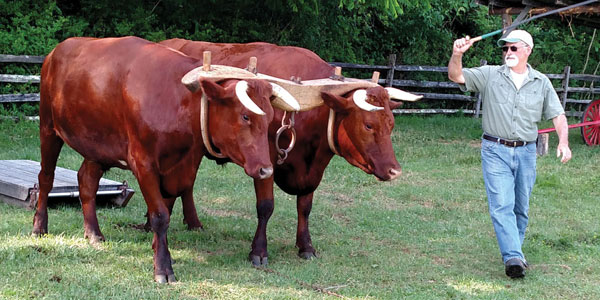"Whoever sheds the blood of man
By man shall his blood be shed,
For God made man in His own image."
- Genesis 9:6
This brief poem, just three lines, contains God's words to Noah, a blanket provision for the death of murderers. Murder is to be a capital crime because God made man in His own image. Therefore, to attack man is, in a sense, to attack God. This verse comes up frequently in debates over capital punishment. However, rarely do we hear anyone discuss the verse before it: "For your lifeblood I will require a reckoning: from every beast I will require it and from man. From his fellow man I will require a reckoning for the life of a man" (Genesis 9:5).
I find it very intriguing that God holds not just a human murderer to be accountable for his action, but also an animal, if it kills a human being. And it isn't just described as a practical matter of removing dangerous animals. Rather, the beast is to make a reckoning parallel to that required from a man. This is the general principle, and then the particulars are provided later in the case law: "When an ox gores a man or a woman to death, the ox shall be stoned, and its flesh shall not be eaten, but the owner of the ox shall not be liable. But if the ox has been accustomed to gore in the past, and its owner has been warned but has not kept it in, and it kills a man or woman, the ox shall be stoned, and its owner also shall be put to death" (Deuteronomy 21:28-29). If an animal, in this case an ox, kills a human being, it is to be stoned. Notice that it is not butchered. In fact the law explicitly forbids that the animal be eaten. Rather, it is to be killed, executed, as a criminal is killed, not as a food animal.Then there is a two-tier process of dealing with the animal's owner. If the attack were out of character, then the owner faced no additional consequence than the economic loss of his animal. However, if the animal had a history of aggression toward humans, but then was inadequately restrained, the owner, too, is to be executed. The animal and the man are to receive the same judgment.
That is astounding! It demonstrates the moral accountability of a creature in whom we would not predicate a moral nature.
And that fact is significant for holders of some modern doctrines, such as an age of accountability for children or a lack of accountability for the mentally disabled.
What we especially see from the examples above is that God's attention is on the victim, not the perpetrator of the crime. The victim in each case is a human being, God's image bearer. Given that fact, then the necessary penalty is fixed, without regard to any mitigating factors in the nature of the perpetrator. There is no consideration of whether the perpetrator contemplated committing a crime or otherwise mentally displayed evil intent. He is simply to die.

No comments:
Post a Comment